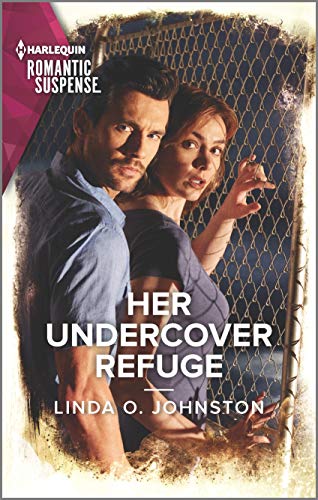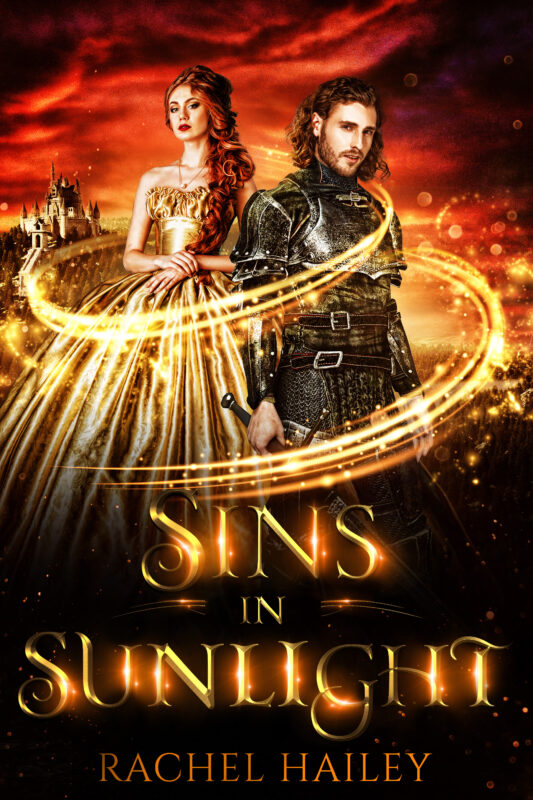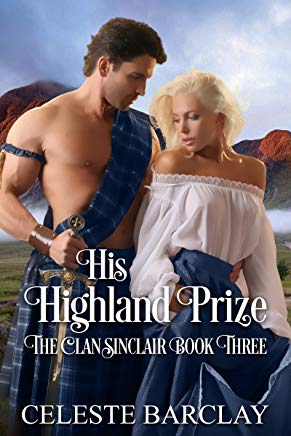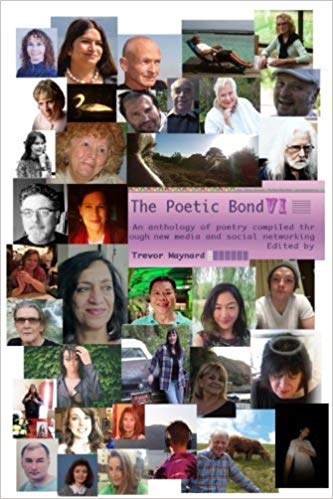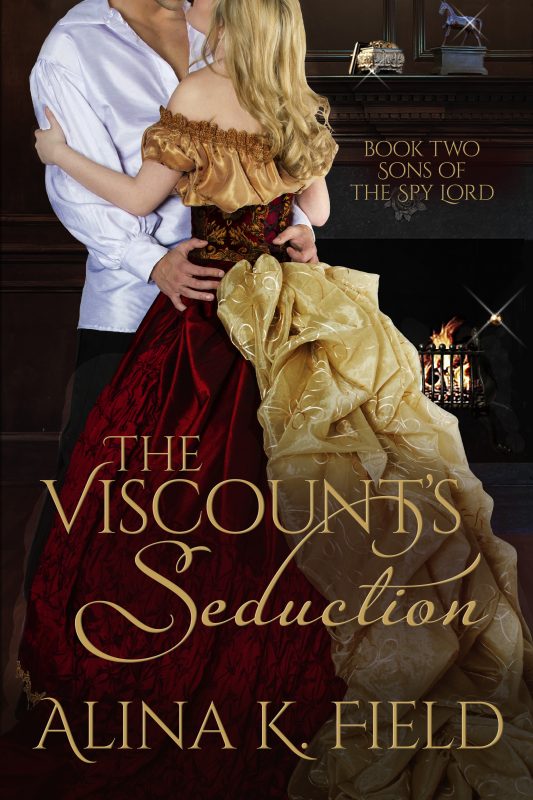Five Things I Learned Teaching Writing to Children
September 10, 2019 by Tari Jewett in category Writing tagged as writingNot that I’m a brilliant writer, or have anything that anyone else doesn’t have within them, but on occasion I’ve been asked if I could teach someone to make magic with words.
One of those people was a friend with a journalism degree, who was applying to grad school, and not getting great results from his application essay. He asked me if I might be able to tweak it, I did my best, he loved it, and asked me what I’d done.
“You wrote everything I wrote, didn’t add or delete anything, and yet it’s magic. Can you teach me to do that?” I didn’t really know what I had done, so I wasn’t very helpful at the time. This happened many times over the years, and I wondered if ‘making magic’ was something inherent rather than something that could be taught.
Years later an opportunity arose to teach a class on writing for magazine publication to children in the GATE class at our sons’ elementary school. The students ranged from grades 3-5 with IQ’s that put them in the gifted range. As a child, I’d dreamed of becoming a teacher, and this opportunity both excited and terrified me…and ultimately, I’m sure that I learned more than the kids that I taught that year.

- Some of us are rule followers and others rule breakers. This is true for both kids and adults. But, it’s important to know the rules so that when you break them you know what you’re trying to accomplish. I learned that although I tend to be a rule follower, sometimes it’s a good thing to break the rules!
- You can create energy, power or ‘magic’ just by changing a few key words. Drop unnecessary words that slow a sentence down, use active verbs, and power words to give your sentences more strength. This may seem like a no brainer to most of you, but twenty years ago, when I taught this class, the only writing instruction I’d had had been in high school, and until I analyzed what I did, to teach the students, I had never broken it down.
- Write the way you speak. Let the reader ‘hear’ your voice. Kids tend to do this naturally. They write exactly what they would say, but eventually, school, society, the universe somehow makes us believe that in order to write ‘Great Literature’ we have to write more formally. Save the formalities for business letters and legal documents, and write the way you’d speak to your audience.
- No one thinks they like to do revisions, until they start to see the magic! Then very often you can change their minds. I sometimes do more than a dozen rewrites, I definitely need a deadline, or I’ll rewrite forever. For me the real ‘writing’ or crafting is done during the revisions. The first draft is to organize my ideas and get them on paper. The kids in my class wrote at least three drafts of the articles they were writing before they submitted them to real publications. Each revision we added another layer to their writing, and they began to see exactly what they were capable of if they went that extra mile (or draft). When teachers, and parents asked how I’d gotten the kids excited about writing three drafts, I just smiled and told them it was magic!
- Not only can rejections be positive, but they can be fun!! At the end of the school year we submitted their work to publications, and spent our final sessions reading rejection letters that had been received by famous authors. The kids loved hearing how L. Frank Baum had been told that The Wizard of Oz was ‘too radical a departure from the traditional juvenile literature’ and yet, nearly 100 years later we’re still reading this book, that A Wrinkle in Time by Madeline L’Engle received twenty-six rejections, and that JKRowling’s, Harry Potter was rejected twelve times, and she was told ‘not to quit her day job’.
I also reminded the kids that if they happened to receive a rejection letter, it was a badge of honor, not very many people, even grown ups have actually had their work considered by a real publication. All of the students work was published in a school collection, and by the last day of class, they had promised to let me know when they heard from the publication they’d submitted to.
All summer I received excited phone calls from students who had received rejection letters. A few parents even told me that they’d framed them. And, two of my students were published in magazines.
The kids excitement to receive even a rejection reminded me how lucky I am to do what I love, and that rejection should be a learning tool, not the doorway to depression.
So there you go, just a few things that I learned teaching writing to children, and by the way my friend got into graduate school! I’m sure that with his GPA and the hard work he’d done as an undergraduate, he’d have been accepted anyway, but I’d like to think that there was a little bit of magic involved!
3 0 Read moreTHE HORRIBLE, TERRIBLE, AWFUL ‘R’ WORD
August 15, 2019 by Rebecca Forster in category The Write Life by Rebecca Forster, Writing tagged as Research for Writers, words, writing style
I’ve been thinking a lot about redundancy in the last week because I am editing a book that has been a long time in coming. I want the fans that have been waiting for this book to be pleased, as much as I want new readers to be impressed. I was able to recapture the series character voices, the plot was solid, but something was amiss with the writing.
While I was redlining the phrase ‘she turned her head’ for the twenty-fifth time, I realized that much of my description was redundant. I’ve suffered through this before, but this time instead of instead of soldering on I set aside my work and went for the dictionary. The definition of the word redundant was richer and more nuanced than I realized and each definition could be applied to my work.
Redundancy, as I understand it, is characterized as a similarity or repetitiveness. This made sense in terms of the edit I made to delete a recurring phrase. The dictionary further defined the word as describing something exceeding the normal, superfluous, and containing excess. Finally, redundant may be used to describe the profuse or lavish. These definitions were inspiring when applied to the craft of writing. In fact, I realized my WIP suffered greatly from redundancy.
Always chasing a higher word count, I was excessive in my use of conjunctions, verbs and adverbs. My style was buried under unnecessary words and phrases. Each passage became overly formal, lacking grace and fluidity. I had a tendency to say the same things in different ways as if my reader wouldn’t get the point the first time. My love of alliterations, similies, idioms and hyperbole were profuse and lavish to the point of distraction.
The bottom line is this: by attempting to create a memorable work I had, instead, created a book that would be unnecessarily difficult to read. The red pen had already been put to good use, but now I am making the next pass with all the definitions of redundancy top of mind. Already my writing is more precise, the characters are freed from the weight of unnecessary dialogue, and the descriptions of time and place are clearer.
It’s true that you learn something new everyday, and that’s one redundancy I can live with.
3 1 Read moreThe Kissing Index by Diane Sismour
August 13, 2019 by marianne h donley in category Guest Posts, Writing tagged as all five senses, kisses, Writing romance
Do your kisses reveal the relationship between your characters to the reader—those delicious tastes of nectar shared between two people? Whether you are writing an innocent first kiss in Young Adult or a smoking-hot Romance, compel the reader to finish with believable splashes of magic.
You can keep the PG-13 rating and still turn up the heat by using all five senses to capture a first kiss. If she licks her lips nervously and draws his gaze to her mouth, the anticipation mounts. Are his fingers smooth or rough against her cheek as he brushes her hair back? Body temperatures rise and the simple scent of a shampoo is intoxicating in close proximity, triggering more reactions than just his pants becoming too tight. A shortness of breath and racing hearts all lead to the moment their lips meet for the first time.
A couple with time to explore each other engages in the slow lingering dance of tongues. Heighten sexual intrigue by adding tactile sensations to capture a scene and raise the hot factor. His lips are soft, tasting musky and very male. She bites hard into his neck, eliciting a deep moan from her lover that vibrates through her. She unzips his worn jeans and her body slides slowly down his legs with the denim. How can the rough plaster against her back feel so cold, while his hands are searing her skin? The story pace builds and the intensity between your characters drives the reader to a cover-to-cover read.
Passionate kisses exchanged between lovers should leave the reader squirming in their seat hoping no one interrupts them while reading the scene. The slow exploration is over—this is full body contact and clothes are flying around the room like a clearance sale at Feline’s Basement. While lip-locked, hands arouse responses hastening along all their partner’s sexual triggers. The hard tweak of a nipple evokes gut wrenching desire, fingernails raking across his hip and lower to mark claim has him pulling her closer, and the heavy musk of sex adds vivid tension to the scenes. She kicks a drink off the side-table, the glass shatters and neither notice. They are beyond caring about anything, but what’s happening between them and your reader is too.
So, how hot are your kisses? If they need work, remember to use your senses, take time to feel through the scene and it doesn’t hurt to practice. Whether the kisses are innocent nibbles or a toe-curling lip-lock there is always another level to compel the reader into your story.
Happy Writing
~ Diane Sismour

Diane Sismour has written poetry and fiction for over 35 years in multiple genres. She lives with her husband in eastern Pennsylvania at the foothills of the Blue Mountains. Diane is a member of Romance Writers of America, Bethlehem Writer’s Group LLC, Horror Writers Association, and Liberty States Fiction Writers. She enjoys interviewing other authors and leading writer’s workshops.
Her website is www.dianesismour.com, and her blog is www.dianesismour.blogspot.com.
You can find her on Facebook and Twitter at: http://facebook.com/dianesismour, http://facebook.com/networkforthearts, and https://twitter.com/dianesismour.
0 0 Read more
My Christmas Look Back Tree and how it inspired my holiday novel by Jina Bacarr
August 11, 2019 by Jina Bacarr in category Jina’s Book Chat, Writing tagged as Christmas, Christmas romance, holidays, World War 2, writingI’ve spent Christmas where it snows . . . where it doesn’t . . . and where it’s truly a winter wonderland in the German Alps. The magic only gets stronger over the years for me because each Christmas I have another memory to hang on my tree.
Not a real tree, of course. But what I call my Christmas Look Back Tree.
I can pull up fun memories, funny moments, heartfelt goodbyes, and most of all the true spirit of the season. The star at the top of the tree shines year after year to give me hope.
For there’s nothing like the warm goodness and comforting embrace of family and friends to experience the real joy of the season. Like a cup of hot cocoa with cinnamon sticks that never gets empty.
So, why am I telling you this in August? It’s back to school time, vacation days lingering, time to BBQ and eat burgers and messy corn on the cob. Because I’ve been spending a lot of time recently in a little town in Pennsylvania called Posey Creek.
At Christmastime — during World War 2 in 1943.
I found that in order to create a time and place that existed only in my heart, I relived my own Christmases Pasts far removed from that time, but the sentiment, the hopes, dreams, and needs of my heroine come from a place within me. That I went back to my Christmas Look Back Tree to dig deep into my feelings to mold my heroine.
More on my story next time, but for this post I wanted to write about that even when we write about a time and place we never knew, it still comes from the heart, from our passion to tell a story that reflects a bit of us, even if we don’t know it at the time.
For me, it was Ma. My heroine’s mother. Her strong bond with her mother, her need to see her again (she goes back in time to reconnect with her mother who’s gone when the book opens), also reflects my desire to do the same.
You see, my mother passed away a few days before Christmas many years ago…
So, when we talk about my upcoming release, CHRISTMAS ONCE AGAIN, you’ll understand how joyous I felt writing those scenes when my heroine reconnects with her mother once again…if only for a little while.
NEXT TIME:
News about Christmas Once Again release in October now up for pre-order:
US: https://www.amazon.com/dp/B07V1QT9Z6
UK: www.amazon.co.uk/Christmas-Once-Again-Jina-Bacarr-ebook/dp/B07V1QT9Z6
0 0 Read moreTrains, Planes, and my new Boldwood Adventure by Jina Bacarr
July 11, 2019 by Jina Bacarr in category Jina’s Book Chat, Writing tagged as Boldwood, books, giveaway, romance, Summer, time travel, trains
I have a long history with trains.
Ever since I rode with my mom in a fancy private train compartment overnight (my dad’s company was paying for it) when I was a kid, I’ve loved train travel. The mystery, intrigue, the lulling clackety-clack of the train rolling down the tracks, taking you to a new adventure.
This time my love of trains is taking me on an adventure with BOLDWOOD Books. You’ll be hearing more about this fabulous opportunity in the coming months. Here’s my Author Page at Boldwood.
I’ve ridden on fast trains, slow trains, subways here and abroad, always enjoying the journey itself. So it’s no wonder I wrote a time travel where the heroine goes back in time aboard a train.

Travel back in time on the “Mistletoe Flyer”
I’m in the middle of finishing up the edits, so time is a bit scrunched this month, but I wanted to share with you this “blast from the past.” I believe I was on a Swiss train in the picture, but the only old train ticket I could find quickly was a ticket to Paris when I lived in Pisa.
Here is an Instagram post I thought you might enjoy.
And I’m participating in a promotion this month with Aileen Harwood’s Bookwrapt promos. Here’s where the planes come in: my novella in the book fair is COME FLY WITH ME about a girl who meets a guy at 30,000 feet on New Year’s Eve and sparks fly! Just 99 cents. Some fabulous prizes! CLICK HERE for info and to enter.
Gotta go back to editing…exciting times ahead!
Jina
0 0 Read moreAffiliate Links
A Slice of Orange is an affiliate with some of the booksellers listed on this website, including Barnes & Nobel, Books A Million, iBooks, Kobo, and Smashwords. This means A Slice of Orange may earn a small advertising fee from sales made through the links used on this website. There are reminders of these affiliate links on the pages for individual books.
Search A Slice of Orange
Find a Column
Archives
Featured Books
THE VISCOUNT’S SEDUCTION
An Irish lady from a scandalous family gets a chance at a Season in London and an opportunity for revenge, but her schemes stir up an unknown enemy and spark danger of a different sort in the person of a handsome young Viscount.
More info →Newsletter
Contributing Authors
Search A Slice of Orange
Find a Column
Archives
Authors in the Bookstore
- A. E. Decker
- A. J. Scudiere
- A.J. Sidransky
- Abby Collette
- Alanna Lucus
- Albert Marrin
- Alice Duncan
- Alina K. Field
- Alison Green Myers
- Andi Lawrencovna
- Andrew C Raiford
- Angela Pryce
- Aviva Vaughn
- Barbara Ankrum
- Bethlehem Writers Group, LLC
- Carol L. Wright
- Celeste Barclay
- Christina Alexandra
- Christopher D. Ochs
- Claire Davon
- Claire Naden
- Courtnee Turner Hoyle
- Courtney Annicchiarico
- D. Lieber
- Daniel V. Meier Jr.
- Debra Dixon
- Debra H. Goldstein
- Debra Holland
- Dee Ann Palmer
- Denise M. Colby
- Diane Benefiel
- Diane Sismour
- Dianna Sinovic
- DT Krippene
- E.B. Dawson
- Emilie Dallaire
- Emily Brightwell
- Emily PW Murphy
- Fae Rowen
- Faith L. Justice
- Frances Amati
- Geralyn Corcillo
- Glynnis Campbell
- Greg Jolley
- H. O. Charles
- Jaclyn Roché
- Jacqueline Diamond
- Janet Lynn and Will Zeilinger
- Jaya Mehta
- Jeff Baird
- Jenna Barwin
- Jenne Kern
- Jennifer D. Bokal
- Jennifer Lyon
- Jerome W. McFadden
- Jill Piscitello
- Jina Bacarr
- Jo A. Hiestand
- Jodi Bogert
- Jolina Petersheim
- Jonathan Maberry
- Joy Allyson
- Judy Duarte
- Justin Murphy
- Justine Davis
- Kat Martin
- Kidd Wadsworth
- Kitty Bucholtz
- Kristy Tate
- Larry Deibert
- Larry Hamilton
- Laura Drake
- Laurie Stevens
- Leslie Knowles
- Li-Ying Lundquist
- Linda Carroll-Bradd
- Linda Lappin
- Linda McLaughlin
- Linda O. Johnston
- Lisa Preston
- Lolo Paige
- Loran Holt
- Lynette M. Burrows
- Lyssa Kay Adams
- Madeline Ash
- Margarita Engle
- Marguerite Quantaine
- Marianne H. Donley
- Mary Castillo
- Maureen Klovers
- Megan Haskell
- Melanie Waterbury
- Melisa Rivero
- Melissa Chambers
- Melodie Winawer
- Meriam Wilhelm
- Mikel J. Wilson
- Mindy Neff
- Monica McCabe
- Nancy Brashear
- Neetu Malik
- Nikki Prince
- Once Upon Anthologies
- Paula Gail Benson
- Penny Reid
- Peter Barbour
- Priscilla Oliveras
- R. H. Kohno
- Rachel Hailey
- Ralph Hieb
- Ramcy Diek
- Ransom Stephens
- Rebecca Forster
- Renae Wrich
- Roxy Matthews
- Ryder Hunte Clancy
- Sally Paradysz
- Sheila Colón-Bagley
- Simone de Muñoz
- Sophie Barnes
- Susan Kaye Quinn
- Susan Lynn Meyer
- Susan Squires
- T. D. Fox
- Tara C. Allred
- Tara Lain
- Tari Lynn Jewett
- Terri Osburn
- Tracy Reed
- Vera Jane Cook
- Vicki Crum
- Writing Something Romantic
Affiliate Links
A Slice of Orange is an affiliate with some of the booksellers listed on this website, including Barnes & Nobel, Books A Million, iBooks, Kobo, and Smashwords. This means A Slice of Orange may earn a small advertising fee from sales made through the links used on this website. There are reminders of these affiliate links on the pages for individual books.




















